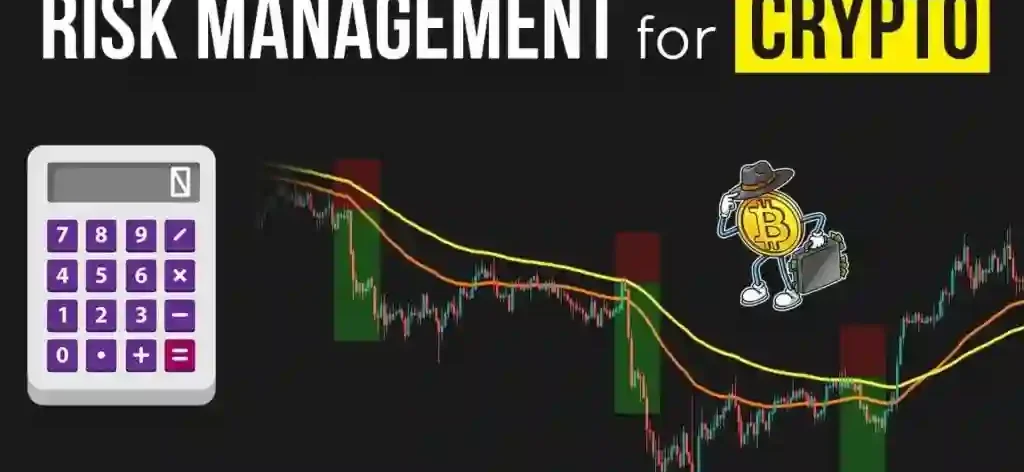Bitcoin has emerged as one of the most talked-about investments of the 21st century. As a digital currency, it has garnered attention from both seasoned investors and newcomers alike. However, like any investment, Bitcoin comes with its share of risks and rewards. In this article, we will explore both sides of the coin, offering insights into the potential benefits and dangers of investing in Bitcoin.
What is Bitcoin?
Before diving into the risks and rewards, it’s essential to understand what Bitcoin is. Bitcoin is a decentralized digital currency, meaning it isn’t controlled by any government or central authority. It was created in 2009 by an anonymous person or group known as Satoshi Nakamoto. Bitcoin transactions are verified through a blockchain, which is a public ledger that records all transactions made with the currency.
One of Bitcoin’s most appealing features is its limited supply. There will only ever be 21 million Bitcoins in existence, making it deflationary in nature. This scarcity, along with the ability to transfer Bitcoin across borders without intermediaries, has led many to view it as a store of value, similar to gold.
The Rewards of Investing in Bitcoin
1. High Potential for Profit
The primary reward for many investors is the potential for high returns. Bitcoin’s price history is a rollercoaster ride, with dramatic increases in value. From 2010 to 2021, Bitcoin experienced exponential growth, reaching its all-time highs in late 2021. For those who invested early, the returns were staggering, turning a modest investment into a fortune.
Unlike traditional investment assets, Bitcoin’s price is not bound by traditional economic forces like inflation or interest rates. Instead, its value is driven largely by supply and demand, media influence, and the growing acceptance of cryptocurrencies in mainstream finance.
2. Hedge Against Inflation
Many investors view Bitcoin as a hedge against inflation. Traditional fiat currencies, such as the U.S. dollar, can lose value over time due to inflation. In contrast, Bitcoin’s fixed supply means that it cannot be inflated at will by any central authority. This limited supply gives Bitcoin the potential to retain or even increase its value in the face of rising inflation.
During times of economic instability, when central banks print money in large quantities to combat crises, Bitcoin can act as a safe haven for wealth preservation. Countries with unstable currencies, such as Venezuela or Zimbabwe, have seen Bitcoin adoption surge as a means of storing value outside of their depreciating fiat systems.
3. Decentralization and Security
Another major reward of investing in Bitcoin is its decentralized nature. Unlike traditional currencies controlled by governments or central banks, Bitcoin is peer-to-peer. This decentralized system removes the need for intermediaries like banks, reducing the risks of fraud or government interference.
Moreover, Bitcoin transactions are highly secure. Bitcoin relies on blockchain technology, which uses cryptographic techniques to secure transactions. Once a transaction is recorded on the blockchain, it is almost impossible to alter, making Bitcoin resistant to fraud and counterfeiting.
4. Global Accessibility and Liquidity
Bitcoin has the advantage of being accessible to anyone with an internet connection, regardless of their location. This is particularly advantageous in regions with underdeveloped banking infrastructure or where people face restrictions on access to traditional financial services. For example, Bitcoin offers an alternative to people in countries with strict capital controls or oppressive regimes, allowing them to store and transfer wealth freely.
Additionally, Bitcoin is highly liquid, meaning it can be easily bought or sold on exchanges at any time. The liquidity of Bitcoin makes it easy for investors to enter or exit positions quickly, whether they are looking for short-term gains or long-term investments.
5. Mainstream Adoption and Institutional Interest
In recent years, Bitcoin has gained increasing acceptance from mainstream financial institutions. Major companies, such as Tesla, Square, and MicroStrategy, have made significant investments in Bitcoin, further legitimizing it as an asset class. Moreover, financial institutions like PayPal and Fidelity have begun offering Bitcoin-related services, making it easier for individuals to buy, sell, and store Bitcoin.
The growing interest from institutional investors has the potential to drive Bitcoin’s price upward. As more companies and financial institutions embrace Bitcoin, its integration into the global financial system will likely deepen, boosting its legitimacy and increasing its value.
The Risks of Investing in Bitcoin
While the rewards of Bitcoin investment are alluring, there are also significant risks involved. Here are the main risks to consider before investing in Bitcoin.
1. Price Volatility
Bitcoin is notoriously volatile. While this volatility can present opportunities for significant profit, it also increases the risk of substantial losses. Bitcoin’s price can swing dramatically within short periods, influenced by factors such as regulatory news, technological developments, or shifts in market sentiment. For example, in 2017, Bitcoin’s price surged to nearly $20,000 before falling back below $4,000 in 2018.
This volatility makes Bitcoin a risky investment, especially for those looking for stable, predictable returns. Investors may find themselves caught in a downward spiral if they buy at the peak and face steep losses during a downturn.
2. Regulatory Uncertainty
One of the biggest risks of investing in Bitcoin is the uncertainty surrounding its regulatory environment. Governments around the world are still grappling with how to regulate Bitcoin and other cryptocurrencies. While some countries, such as El Salvador, have embraced Bitcoin, others have taken a more cautious or hostile stance.
In countries like China, Bitcoin mining and trading have been banned, creating a significant disruption in the market. Future government regulations could impact Bitcoin’s value, liquidity, and legality. For example, a government crackdown on Bitcoin could lead to a sharp decrease in demand or make it more difficult to exchange Bitcoin for fiat currencies.
The regulatory landscape is still evolving, and there is the possibility that stricter regulations or outright bans could be imposed, creating risks for Bitcoin investors.
3. Security Risks and Hacks
Although Bitcoin transactions are highly secure, the platforms where you store and trade Bitcoin can be vulnerable to hacking. Cryptocurrency exchanges, wallets, and other platforms have been targeted by cybercriminals in the past, leading to the loss of millions of dollars in Bitcoin.
Investors must take extra precautions to ensure the safety of their assets. This may involve using cold storage wallets (offline storage) for long-term holdings, enabling two-factor authentication, and being cautious of phishing scams or other online threats.
4. Lack of Consumer Protections
Unlike traditional investment vehicles, Bitcoin offers no consumer protection in case of fraud, theft, or loss. If an investor loses access to their Bitcoin wallet, for instance, it is virtually impossible to recover the funds. There is no regulatory body or central authority to turn to for assistance.
For investors who are unfamiliar with the technology or who do not take the necessary security measures, the risk of losing their investment is high. This is especially true for those who store their Bitcoin on exchanges rather than in private wallets.
5. Environmental Concerns
Bitcoin’s energy consumption is a topic of concern. The process of mining Bitcoin, which involves solving complex cryptographic puzzles to validate transactions, requires a significant amount of electricity. In recent years, the environmental impact of Bitcoin mining has come under scrutiny, as many mining operations are powered by fossil fuels.
As awareness of climate change and sustainability grows, Bitcoin’s environmental footprint may become a more significant risk for investors. Increased scrutiny and potential regulatory action aimed at reducing Bitcoin’s carbon emissions could affect its value and adoption.
6. Market Manipulation and Speculation
Bitcoin’s market is still relatively young and less regulated compared to traditional financial markets. This makes it susceptible to manipulation by large players or “whales” who hold substantial amounts of Bitcoin. These whales can influence market prices by making large buy or sell orders, leading to price swings that are not reflective of the true market value of Bitcoin.
Additionally, the speculative nature of Bitcoin investment means that some investors may be driven by the fear of missing out (FOMO) rather than fundamental analysis. This can lead to irrational price bubbles and sudden crashes when market sentiment shifts.
Conclusion
Investing in Bitcoin offers the potential for significant rewards, particularly for those who are early adopters or willing to take on risk. Its high potential for profit, inflation hedge qualities, decentralized nature, and increasing mainstream adoption make it an attractive asset for many investors.
However, the risks associated with Bitcoin are also substantial. Its volatility, regulatory uncertainty, security vulnerabilities, and lack of consumer protections create challenges for investors. Moreover, environmental concerns and market manipulation add further layers of risk.
As with any investment, it is essential to conduct thorough research, understand the risks, and invest only what you can afford to lose. Bitcoin may be a revolutionary financial asset, but it is not without its dangers. Whether it proves to be a groundbreaking investment or a passing trend will depend on how it continues to evolve in the coming years.





